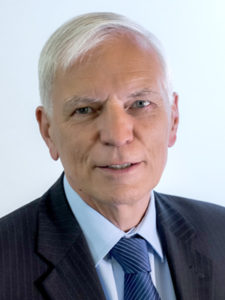
The European League Against Rheumatism (EULAR) recently updated its strategic priorities in a number of key areas, including the management of inflammatory arthritis. This year’s EULAR session, Back to the Future: Transformative Vision for RA?, will examine new approaches to therapeutic advances, strategies of care, practical management pathways, application of treatment guidelines, and imaging.
During the session, which takes place from 2:30 – 4:00 pm Sunday in Room W183a, EULAR President Johannes W.J. Bijlsma, MD, PhD, Professor at the Department of Rheumatology and Clinical Immunology at University Medical Center Utrecht in the Netherlands, will serve as moderator and will open the discussion with an overview of EULAR’s strategic vision in six key priority areas over the next five years.
Among the priorities, Dr. Bijlsma said, are initiatives that will reinforce EULAR’s role as a leading provider of education in rheumatic and musculoskeletal disease.
Ongoing research on the pathogenesis of rheumatoid arthritis and advances in therapeutic development will be the topic of a presentation by Iain B. McInnes, MD, PhD, FRCP, FRSE, Muirhead Professor of Medicine, ARUK Professor of Rheumatology, and Director of the Institute of Infection, Immunity and Inflammation at the College of Medical, Veterinary and Life Sciences, University of Glasgow, Scotland.

“The last two decades have been very successful in terms of generating new therapies for the treatment of people with RA,” Dr. McInnes said. “Even with those new medicines that we are successfully innovating, we do not really have a clear understanding of which people will benefit most out of the totality of the RA population, who will be at risk of adverse events, and when in the course of the disease a given medicine can be optimally used. As such, we rely currently on algorithms to direct our therapeutic decisions.”
Dr. McInnes believes that an increasingly more detailed understanding of the pathogenesis of RA will inform the search for new targets for drug/technology development, essentially enabling a true precision medicine-based approach to treatment.
“An ever-greater understanding of disease will potentially yield yet even more benefits in terms of therapeutics development and their application in the next decade,” he said. “The technologies that can now be applied in the era of molecular medicine and imaging will be transformative in supporting this progress.”
The possibilities that the application of precision medicine approaches in RA management might bring to clinical practice in the coming years will be the topic of a subsequent presentation by Gerd R. Burmester, MD, Professor of Medicine in the Department of Rheumatology and Clinical Immunology at the Charité University Hospital, Free University and Humboldt University of Berlin, Germany.
Also during the EULAR session, Elena Nikiphorou, MD, Rheumatology Consultant and Clinical Researcher in the Academic Rheumatology Department of King’s College London, will discuss evolving clinical care pathways, and Annamaria Iagnocco, MD, Professor of Rheumatology at the University of Torino in Turin, Italy, will talk about how the use of advanced imaging will impact the overall management of RA in the next five years.
The ACR invited EULAR to share their perspectives and insights in an effort to help expand the data exchange that is critical to improving patient care worldwide. The ACR expresses its gratitude to EULAR for helping the ACR provide Annual Meeting attendees additional opportunities to learn from speakers with diverse experiences.
